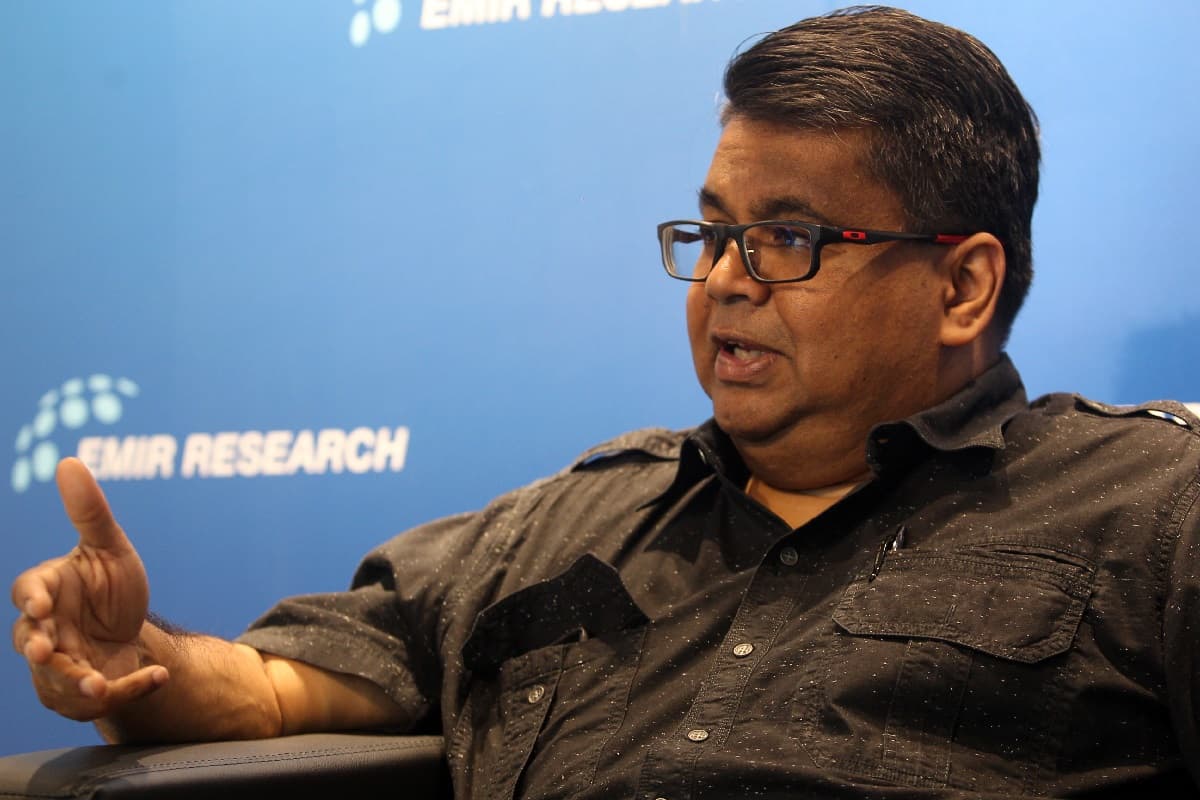
KUALA LUMPUR (Dec 7): EMIR Research has said the 5G spectrum should be licensed to individual operators while Digital Nasional Bhd (DNB) should be restructured into a neutral government-owned entity focusing on expanding passive network infrastructure.
The think tank's president and chief executive officer Dr Rais Hussin said the practice of awarding the spectrum to individual mobile network operators (MNOs) in an auction is in line with other countries that have already launched 5G.
"Note that even countries that initially faced a problem of 5G spectrum band scarcity (and therefore were considering sharing the spectrum) eventually rushed to do spectrum conversion (freeing up the suitable 5G band) just to be able to distribute it via auction or beauty contest among the MNOs," he said, citing the Economist Intelligence Unit, which gives a snapshot of 5G readiness in 60 of the world's largest markets as examples.
Prime Minister Datuk Seri Anwar Ibrahim on Monday (Dec 5) said that his administration would review Malaysia's plans for 5G roll-out as there were concerns that it was not formulated transparently. DNB is a 5G single wholesale network (SWN) which is the sole entity mandated to roll out 5G nationwide. Existing telcos are prohibited from building their own 5G network and will need to lease access from the state-owned network.
Rais in a statement on Wednesday (Dec 7) said the rationale to award individual licences will allow healthy competition among the MNOs.
He said this is because the moment spectrum is shared, automatically, the active network equipment must be shared too (see Figure 2).
"So even though under SWN, MNOs may continue to own their own set of core network equipment, no matter how superior equipment they have at the core network level are, it can do very little if the active network equipment provide substandard quality and some more if it is entirely out of individual MNOs' control like it is going to be under DNB. This is the critical problem! So the result will be an industry with low competition, innovation and, as a result, low quality and no reduction in prices," he added.
Nonetheless, the think tank called for a stringent telecoms licence regulation, including setting key performance indicators (KPIs) in terms of the minimum required network quality and revocation of the spectrum licence in case of falling short of those KPIs.
Rais also emphasised on efforts to stop the brain drain of critical technology-related skills and talents.
Additionally, the think tank said DNB "completely ignores the key problem of Malaysia's passive network infrastructure lacking in rural areas in their proposition, especially fibre and backhaul, because it subcontracts everything to third parties and owns nothing and does nothing except project management (churning out the contracts) — one big red flag".
It also warned that DNB's costs are highly likely to be understated, adding that dealing with only one supplier reduces the potential for competitive and dynamic cost reduction over time.
"RM4 billion as estimated corporate costs over 10 years for an entity that nearly owns nothing, does nothing except playing a role of a middleman of a kind, simply suggests itself for more scrutiny and breakdown," he said.
Rais said a sluggish 5G demand inadequate to cover minimum coverage capacity would not only negatively impact MNOs' cash flow but also directly DNB's bravado "securitised" cash flow and therefore become the taxpayers' liability very quickly.
Meanwhile, Rais said the Universal Service Provider (USP) Fund should be sufficient for the purpose of expanding the passive network. The USP Fund, established under Section 204 of the Communications and Multimedia Act 1998, is aimed at bridging the digital divide.
As per the USP regulation, it is mandatory for telecommunications services companies with a net revenue of more than RM2 million for the year of assessment to contribute 6% of its weighted revenue to the USP Fund.

